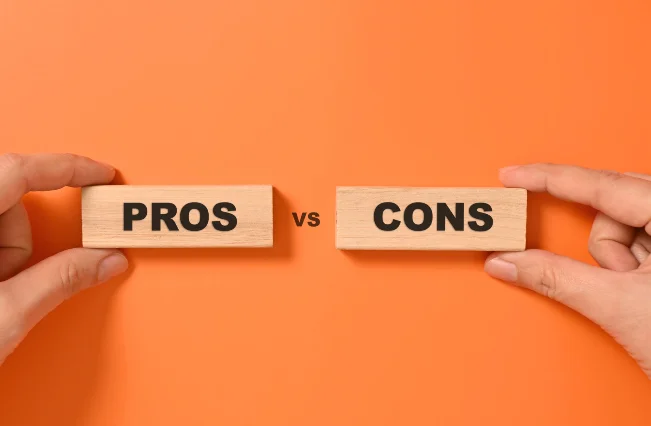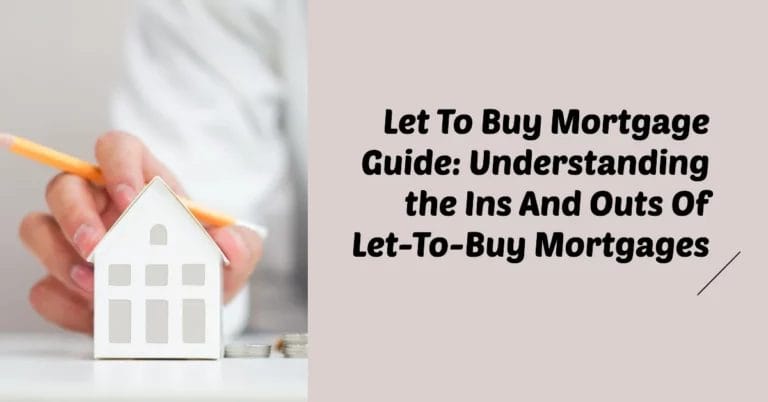How To Buy a Buy-To-Let Property: Pro Tips for Become a Landlord In The UK
Owning rental properties is a good way to earn passive income and make a lot of money in the long term. However, it can be complicated, especially for new landlords. At Experts Mortgage Brokers, we know a lot about this type of investment and can help you at every step.
We customise our services to your needs so you can make smart decisions that match your financial goals. Our team has much experience in the rental property market, and we want to help you succeed.
We will clearly explain buy-to-let mortgages and rental income, whether you are new to this or have experience. We’ll help you find the right property and get the best financing to ensure you earn as much as possible while facing the fewest risks.
Let’s start this journey together. We can help you enter the rental property investment world and find financial growth and security opportunities.
How Does Buy-to-Let Work?
Buy-to-let investing is when you purchase a property (buy a property, house, rental properties) with the sole purpose of renting it out to tenants. It’s a popular property investment strategy that allows you to earn income in two main ways:
By combining these two income streams, buy-to-let offers the benefits of regular monthly income as well as the potential for a significant payout down the line. It’s a lucrative investment opportunity for many.
How to Become a Landlord

Get a Buy-to-Let Mortgage
Unless you’ve got a massive savings account, you’ll need a mortgage to buy a rental property. But not just any old mortgage – you’ll require a specific buy-to-let mortgage.
Lenders have different rules for who qualifies for these mortgages and how the repayments work. Most will want you to already be a homeowner earning over £25,000 per year. A good credit score is a must, and some lenders have an age limit of 70 or under.
Who Can Get a Buy-to-Let Mortgage?
To secure a buy-to-let mortgage and become a landlord, lenders typically require:
Lenders want to see stable finances and that you can handle the responsibilities of being a landlord.
Repayment Options for Buy-to-Let Mortgages
With a regular residential mortgage, you pay capital plus interest each month to gradually pay off the loan. But for buy-to-let, interest-only is a popular choice.
Interest-Only Buy-to-Let Mortgages:
So you’ll need an exit strategy for when that final lump sum is due, usually 25-30 years later. But interest-only can make monthly costs easier to manage.
At Experts Mortgage Brokers, we’ll guide you through all the mortgage options to find the right fit for your buy-to-let investment plans.
Understand How to Make Money with Rental Property
To turn a profit as a landlord, you’ll need to generate income from two main sources:
When evaluating potential buy-to-let properties, it’s crucial to consider their money-making potential from both rental income and long-term capital growth.
Calculating Rental Yield
One key metric to assess a property’s profitability is its rental yield – the annual rental income expressed as a percentage of the property’s value.
For example, a £200,000 property rented out for £1,000 per month (£12,000 per year) would have a rental yield of 6% (£12,000 / £200,000 x 100).
Generally, a rental yield of around 5% or higher is considered a good return for buy-to-let investments. However, some properties, particularly houses in multiple occupation (HMOs), can achieve yields as high as 12-15%.
Finding High-Yield Areas
Rental yields can vary significantly between different areas and property types. Research local housing markets to identify locations and properties with the potential for strong, consistent rental demand and healthy yields.
At Experts Mortgage Brokers, we can provide insights into high-yield areas and property types based on our in-depth market knowledge. We’ll help you crunch the numbers to find investments that align with your financial goals.
Don’t forget to factor in ongoing costs like mortgage interest, income tax, repairs, and maintenance when evaluating potential returns. Proper budgeting is key to maximizing your buy-to-let profits.
The Taxes You Pay on a Buy-to-Let Property
As a landlord, you’ll need to factor in various taxes when considering the profitability of your rental properties. Here’s a breakdown of the main taxes you’ll encounter:
Tax on Rental Income
Your rental income will be subject to income tax at your applicable tax band rate. Be aware that this additional income could potentially push you into a higher tax bracket.
However, you can deduct certain allowable expenses from your rental income before calculating the tax due. These include:
Relief on mortgage interest is currently capped at the basic rate of 20%, regardless of your personal tax rate.
Capital Gains Tax
When you eventually sell your buy-to-let property, you’ll likely need to pay Capital Gains Tax (CGT) on any increase in value since you purchased it. In other words, you’ll pay tax on your capital gain or profit.
CGT rates are currently 18% for basic rate taxpayers and 28% for higher/additional rate taxpayers. However, there are certain allowances and reliefs that could reduce your CGT liability, such as offsetting the costs of stamp duty, legal fees, and estate agent fees.
Be sure to use the official Capital Gains Tax calculator to estimate your potential tax bill.
Stamp Duty Land Tax
When purchasing a buy-to-let property (or any additional residential property), you’ll pay an extra 3% Stamp Duty Land Tax (SDLT) on top of the standard rates.
This 3% SDLT surcharge applies to the entire purchase price of properties over £40,000, not just the portion above a particular tax band threshold.
At Experts Mortgage Brokers, we can advise you on the various taxes applicable to your buy-to-let investment and help you structure your property portfolio in a tax-efficient manner.
Your Responsibilities as a Landlord
Being a landlord comes with some serious legal obligations. Let’s take a look at the key responsibilities you’ll need to stay on top of.
Tenancy Contracts Most landlords use an assured shorthold tenancy (AST) agreement. This sets out the fixed term (usually 6 or 12 months) that a tenant has the legal right to live in your property. The AST covers vital details like:
Deposit Protection Schemes By law, you must protect any deposit your tenant pays using a government-approved scheme. There are two main options:
- Insured schemes like the Deposit Protection Service – you hold the deposit and pay an insurer.
- Custodial schemes – the deposit is held by the scheme itself.
These deposit schemes provide independent resolution if any disputes arise over the deposit.
Right to Rent Checks: You’re legally required to check that prospective tenants have the right to rent property in the UK before letting to them.
Energy Efficiency: Your property needs an Energy Performance Certificate (EPC) rating of E or above before you can rent it out. If not, you’ll need to improve the rating through energy efficiency upgrades up to a £3,500 cap.
Other Responsibilities On top of that, landlords must also:
It’s a lot to keep on top of! At Experts Mortgage Brokers, we can advise you on fulfilling all your landlord obligations efficiently.
The Pros and Cons of Buy-to-Let Property Investment

Becoming a landlord and investing in buy-to-let properties can be a lucrative venture, but it’s important to weigh the pros and cons carefully before taking the plunge. We’ve spoken to experienced landlords to get their perspectives on the potential benefits and drawbacks.
The Pros of buy to let:
The Cons of buy to let:
At Experts Mortgage Brokers, we can guide you through the potential pros and cons of buy-to-let investment, helping you make an informed decision that aligns with your financial goals and risk tolerance.
Should I invest in Buy To Let properties?
Only you can decide whether becoming a landlord and investing in buy-to-let properties is the right move for you. However, if you choose your rental property wisely and stay on top of your responsibilities, it can be both profitable and rewarding.
Take the time to thoroughly understand the local market, rental demand, potential returns, and the various outcomes of investing in buy-to-let. Don’t be afraid to seek advice from local letting agents who have their fingers on the pulse of the market.
At the end of the day, being a landlord comes with its fair share of obligations, such as managing the property, navigating tenancy laws and deposit protection schemes, and staying compliant with regulations like assured shorthold tenancies and multiple occupation rules.
But if you’re up for the challenge and responsibilities, buy-to-let can be a lucrative investment that provides a steady stream of rental income and the potential for long-term capital appreciation.
We Helped 1000+ Property Owner’s in UK
If you’re considering taking the leap into buy-to-let property investment, our team at Experts Mortgage Brokers is here to guide you every step of the way. From securing the right buy-to-let mortgage to understanding your tax obligations and landlord responsibilities, we’ll ensure you have the knowledge and support to make informed decisions and maximize your returns. Contact us today to discuss your investment goals and let us help you navigate the world of buy-to-let with confidence.






